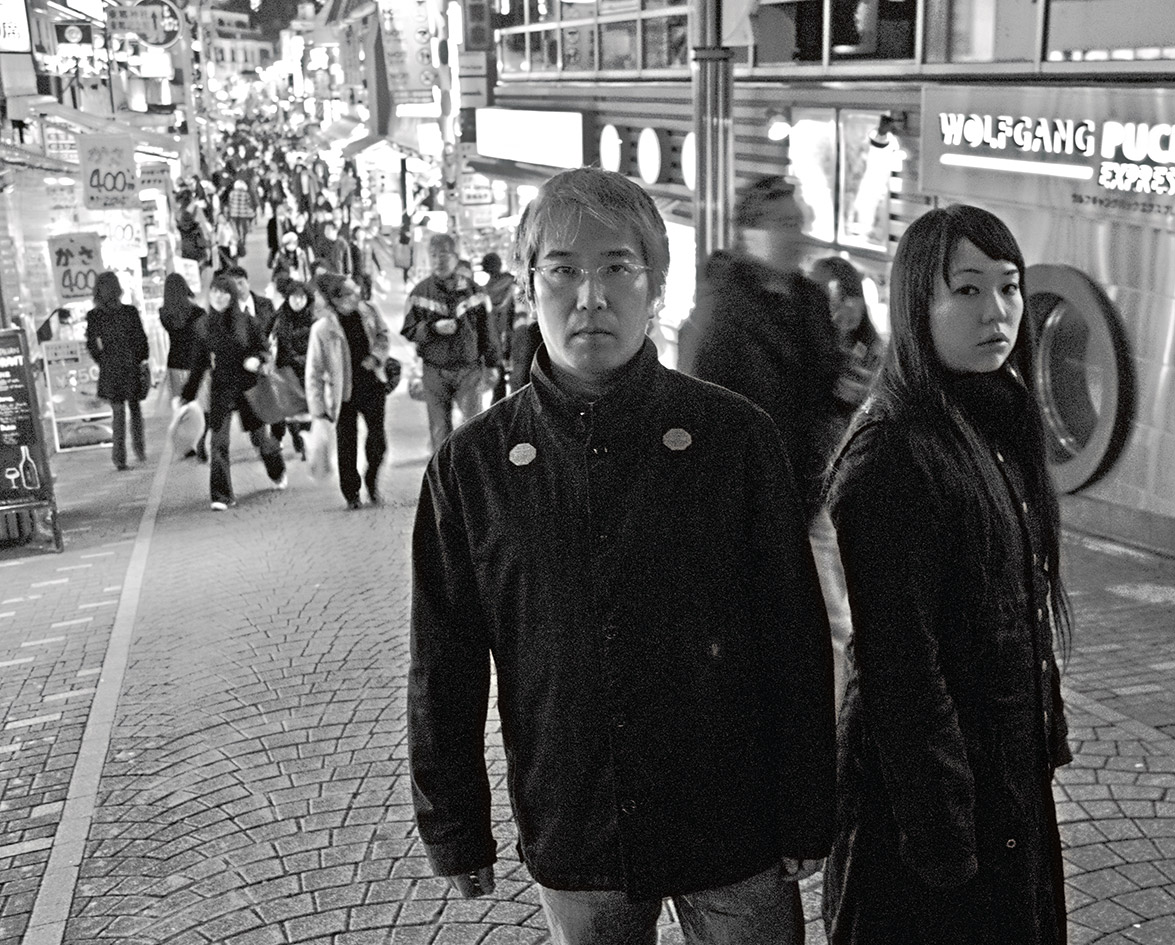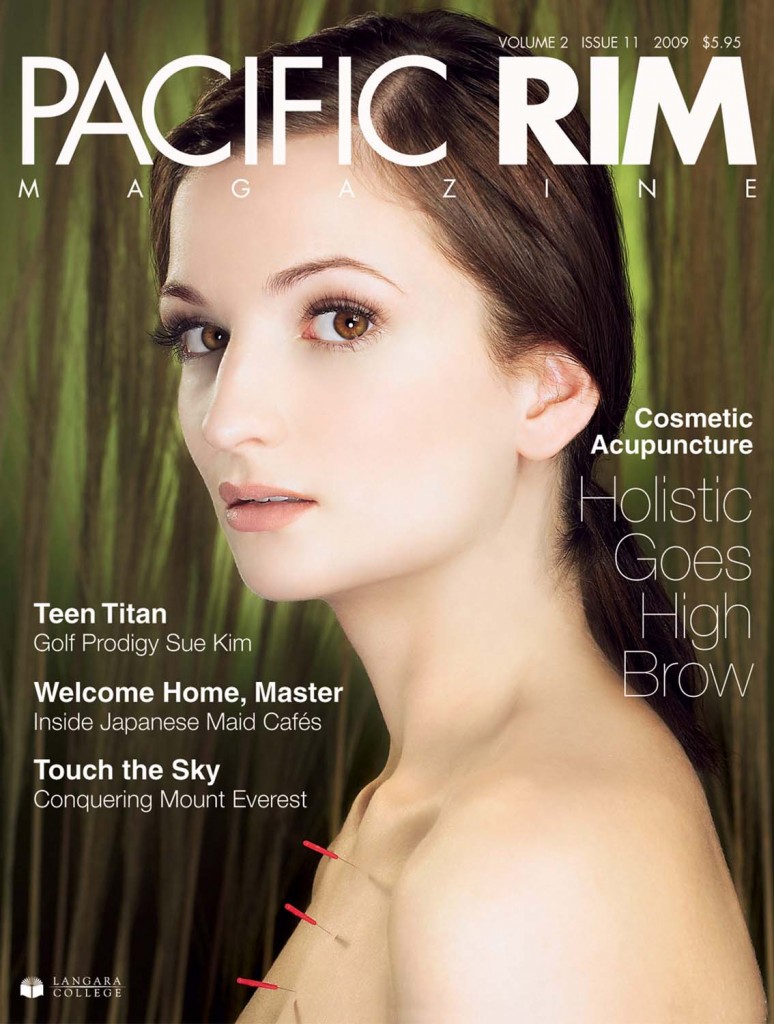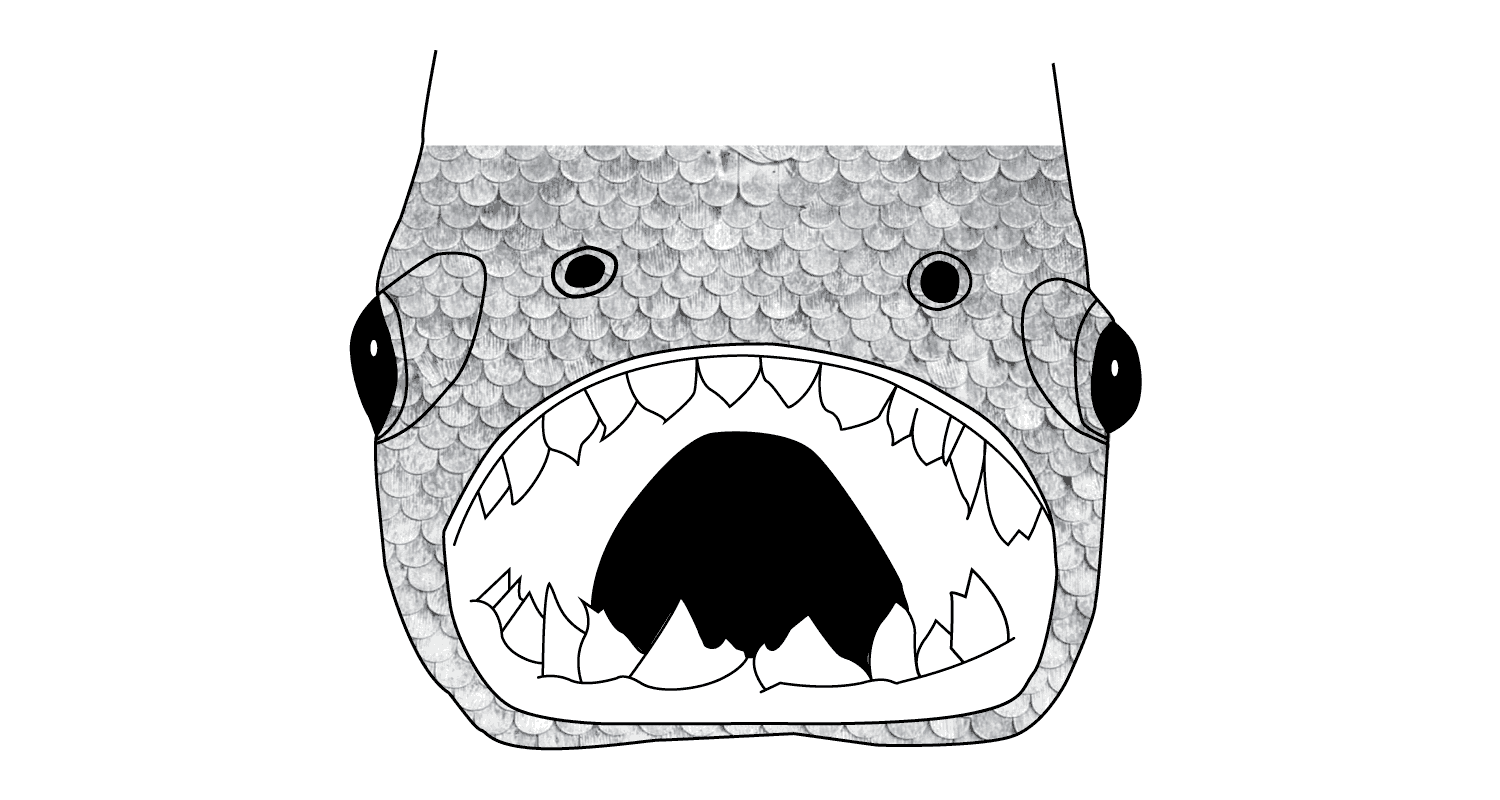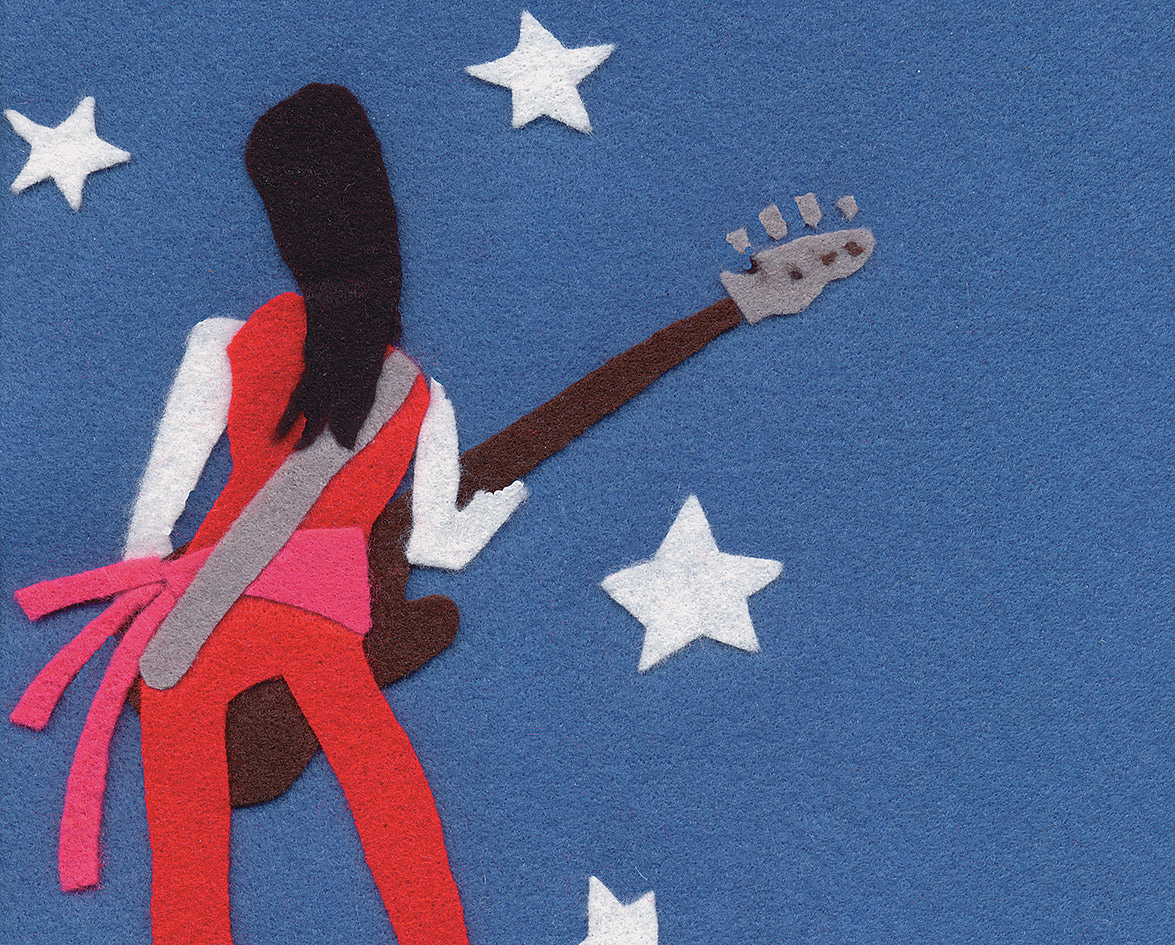On his recent tour of Japan, electronic musician Karl Jorgensen, who performs as OK Ikumi, found himself playing for an unexpected audience. “We were going to book a show in Osaka, but we just ran out of time and couldn’t book anything,” explains Ikumi Watanabe, a co-organizer of Jorgensen’s tour. Luckily, Watanabe’s business partner, Yosuke Yamazaki, knew of some music fans interested in hearing a show.
On a Sunday afternoon, 30 kids packed the living room of Yamazaki’s family friend to hear Jorgensen perform a few songs. They were reserved at first, remaining seated at a safe distance for the first few songs of the set. Then Jorgensen began to explain how his equipment worked, pointing out the cords, controls and mixer that allow him to play live shows with his computer.
Slowly, the kids gathered around, watching closely and asking questions as Jorgensen prepared to play a few more tracks. After that, they didn’t want to sit back down. “They wanted to stay and watch him play, right there,” Watanabe recalls. “I’m sure J-Pop and classical music is all they know, so I don’t think they had experienced anything that was electronic. Almost every single one of them wanted his autograph after the show.”
Creating New Fans
Introducing people to new musical experiences is the ultimate goal of Goochline Music, a small start-up company run by Watanabe and Yamazaki. It grew out of a friendship between Watanabe and Jorgensen, who first met while Watanabe was attending university in Provo, Utah.
An active member of the Provo music community, Watanabe was inspired by the attitudes of the young artists and musicians she met at a place dubbed The Gooch, where Jorgensen lived. “It was just an apartment and on the door it had the name ‘The Gooch,’” she explains. “I think it was the last name of somebody who lived there before. The people there were into doing everything kind of independently. I really like that. They were making music and art very sincerely.”
Watanabe spent eight years in the United States. When she returned home to Japan, she found it hard to recapture the sense of community she had enjoyed in Provo, so she decided to start something. Jorgensen recalls Watanabe first suggesting that OK Ikumi tour Japan, with the help of Yamazaki and herself. “When she asked if I wanted to play in Japan I was like, ‘Yeah, but I don’t know. I don’t have a lot of money. I don’t know how realistic it is.’”
Touring Troubles
Touring abroad is complicated for an independent band. In addition to the challenges of finding funding and transportation, renting gear, booking shows and meeting local bands to play with, communicating in a foreign language without the help of a translator can be a huge barrier. In Japan, the system of setting up shows may also be unfamiliar. Japan’s densely packed cities, with their small houses and thin walls, are less accommodating to unconventional venues. Instead, most Japanese bands or promoters rent rai-bu houses (live houses), which are venues set up especially for live music.
For the OK Ikumi tour, Watanabe relied mainly on venues’ connections, sending some a profile of the band in advance to see if they would be interested in setting up a show. “The venues really liked OK Ikumi’s stuff, even though they knew that with electronica it might be hard to get many people to come out,” Watanabe explains. “At some venues outside of Tokyo we got to play for free. In the centre of Tokyo we had to pay, but we ended up breaking even because we got some people to come.”
Despite the challenges, some musicians do attempt foreign tours without the help of a native booking agent like Goochline. Ryan McCormick, a Vancouver-based musician who performs as Collapsing Opposites, took this approach when he toured Japan in 2004. “I went on the Internet and looked up Japanese bands and venues and tried to research a bit about the music scene there,” he explains. “I wound up on this site called Tokyo Gig Guide, which had a whole list of bands. So I went through them all and listened to them, and contacted the ones I thought might want to set up a show for me.”
The Secret Ingredient
He suggests that the mystique of being a North American act contributed to his success. “When people found out I was Canadian they would say things like, ‘Oh! Canada! We love Joni Mitchell and Tomo Kokoro.’ And I’d say ‘What? I know Joni Mitchell but who’s Tomo Kokoro?’ They’d answer, ‘You know, Tomo Kokoro, life is a highway and I wanna ride it!’”
That many Japanese music fans seem to be aware only of big name Canadian acts like Tom Cochrane is not surprising, given that their music scene is dominated by a style of music known as J-Pop, a term coined by the Japanese media to distinguish Japanese musicians from foreign musicians. The music is often heavily influenced by western acts.
With Goochline, Watanabe hopes to address a larger problem, which she struggles at first to explain. “In Japan they don’t really see things globally, they don’t see the world out there,” she says. “It’s not that they’re not trying enough, but we’re not in the right environment I think, because there are no other countries connected to Japan. It’s on an island. Hearing artists or musicians from other countries might give them different perspectives about life, about music, about everything. And it’s just fun to introduce Japan to other people, too.”
In the future, Goochline plans to continue fostering connections between Japan and independent musicians from abroad. In all their projects, they aim to open a dialogue between artists in Japan and other countries. “Basically, I want to have real communication,” says Watanabe. “I think that’s why I started Goochline. People tend to stay in Japan and not really go outside. That’s why they say they’re indie, but to me they all sound like they’re pop, you know. I think they need to expose themselves more to other cultures and have another experience. They need to see the world out there. So if they can’t do it, then I want to do it for them by bringing music from outside to Japan.”











